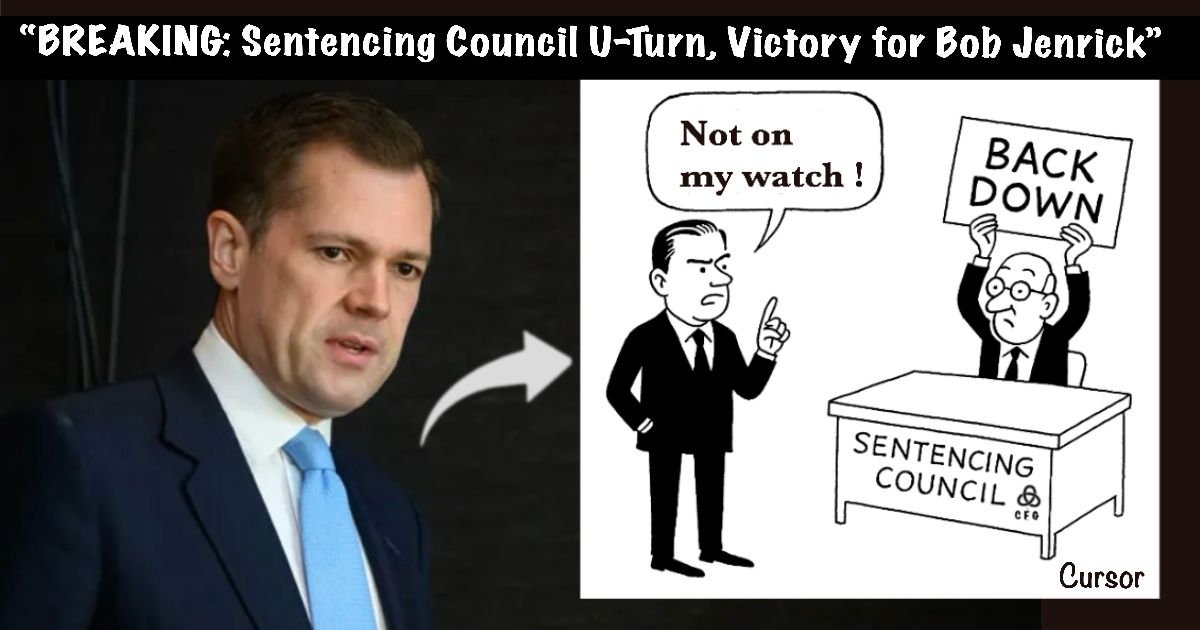BREAKING: Sentencing Council U-turn is a victory for Robert Jenrick
The Sentencing Council’s climbdown halts
The Sentencing Council has executed a , guidance following intense political pressure. The climbdown, which came just hours before the guidelines were set to take effect, marks a for Shadow Justice Secretary and an intervention by Justice Secretary Shabana Mahmood.
Their joint efforts—though originating from opposite sides of the political divide—forced the Council into an , averting what critics had branded an unprecedented step toward discriminatory sentencing in England and Wales.
Under the now-suspended guidance, magistrates and judges would have been required to consider before handing down custodial sentences to individuals from ethnic, religious, or cultural minority backgrounds, as well as women, young adults, and abuse survivors.
While proponents of the scheme claimed it was necessary to correct sentencing disparities, opponents, including a growing faction within government and the legal profession, lambasted it as an attempt to for certain demographics while creating a that left others—most notably white Christian males—at a systemic disadvantage.
The row between ministers and the escalated rapidly. The independent judicial body, which sets sentencing guidelines for courts, initially refused to amend or delay the new framework, despite mounting criticism. But that stance quickly became after Mahmood intervened, describing the proposed measures as and warning that they amounted to
No sooner had the Council dismissed her concerns than , making clear that the government was prepared to introduce emergency legislation to block the move. This, coupled with on what he dubbed turned the tide.
Robert Jenrick, once a mere irritant to the Council, became the . His rhetoric was as sharp as it was relentless, accusing the body of seeking to transform the judiciary into an ideological enforcement wing, turning judges
“Against straight white men.”
In an uncharacteristically aggressive opposition campaign, he took the fight beyond Westminster’s walls, even orchestrating the now-infamous onto the Ministry of Justice—an unsubtle but effective jab at Labour’s prior acquiescence to the proposals.
The government initially sought to by pointing out that similar draft guidelines had been floated under Conservative rule. However, and ability to ensured he emerged as the political victor when the Council .
That reversal, however, was not born of sudden enlightenment. With Parliament primed to legislate against them and , the Council’s options had narrowed to . The choice was obvious.
Its abrupt volte-face, described by as is now being framed by many as proof of the Council’s increasing detachment from both political reality and public confidence in the judiciary.
Braverman was scathing in her condemnation of the Council, calling the abandoned guidelines
“Unfair, discriminatory, racist, and sexist” “Imagine if you and I stood accused of the same crime,”
she further added
“By virtue of our different ethnicity, faith, and gender, we’d have been treated differently in the eyes of the law.”
The former Home Secretary went further, branding the Sentencing Council a .
“It is largely unknown, its members are unelected, and yet they wield immense power in our justice system. That power should be returned to ministers, who can be held to account.”
The fallout from this affair is unlikely to end with the shelving of the guidance. The Sentencing Council has suffered what can only be described as a , with its credibility among ministers in tatters and its future autonomy in serious doubt. The government has already hinted at a of the Council’s role, with that the Prime Minister is considering Translation: this was not a mere policy disagreement—it was a full-blown challenge to the , and one which it decisively lost.
What emerges from this episode is a striking contrast in political fortunes. For Robert Jenrick, it is an . Not only did he lead the charge against the guidance, but he also outmanoeuvred his Labour counterparts, forcing them into an . He has shown that he is more than willing to engage in guerrilla opposition tactics, a skill that may serve him well in future leadership calculations.
For the , the outlook is far bleaker. It has been publicly defied, politically overruled, and legally cornered. An institution that prides itself on has now been reminded—very forcefully—that in a democracy, . It set out to make the judiciary more ‘equitable’; instead, it ended up making a highly compelling case for its own reform, instead.
And as for common sense? For once, it appears to have had its —and !



